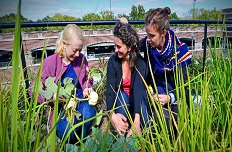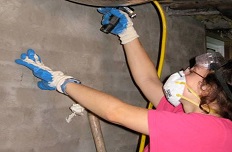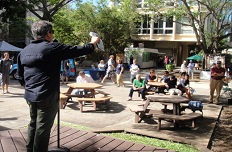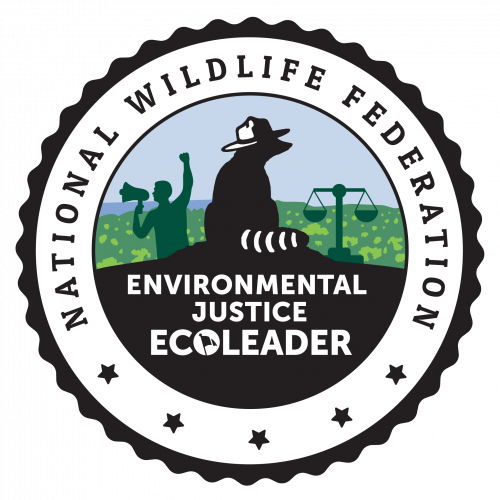Environmental justice first received national attention in the 1970s, when the citizens of a predominately African American community in Warren County, North Carolina, used their bodies to block the state government from dumping toxic waste in a landfill that could contaminate their water. Since then, many communities and their advocates have pushed for the rights of families of lower income and/or color to live in safe, healthy environments.
How can you help fight these injustices? There are many opportunities to make a difference.

Your project or campaign might provide a source of fresh food to communities.

You can also help retrofit lower income community homes with donated products to help citizens use less energy and therefore lessen their own carbon footprints.

Volunteer your time with a local community organization to assist with their environmental justice and community outreach work.
The United States Environmental Protection Agency defines Environmental Justice as the fair treatment and meaningful involvement of all people regardless of race, color, national origin or income with respect to the development, implementation and enforcement of environmental laws, regulations and policies. Unfortunately, many communities are the victims of serious environmental injustices.
According to numerous studies, including the resources below, and personal accounts, areas containing lower income communities and/or communities of color are often targeted as sites for the most damaging energy extraction and industrial practices.
Interested in pursuing a career in environmental and community justice? Check out the environmental and community justice careers outlook in the EcoLeaders Career Center to learn more about careers in the field, hear from professionals and map out your career plan.
Resources
- WATCH: NWF National Town Hall on Environmental Justice and Frontline Communities
- Delegates to the First National People of Color Environmental Leadership Summit held on October 24-27, 1991, in Washington DC, drafted and adopted these 17 principles of Environmental Justice
- Air of Injustice- A report on African Americans and Power Plant Solutions by The Black Leadership Forum, The Southern Organizing Committee for Economic and Social Justice, The Georgia Coalition for The Peoples’ Agenda and Clear the Air
- A Climate of Change- A report on African Americans, Global Warming and a Just Climate Policy in the US, by J. Andrew Hoerner and Nia Robinson
- University-City Collaborations on Sustainability Research and resources from the University of Colorado, Boulder on examples of successful examples of cities and higher education institutions working together toward sustainability goals.
- Environmental Justice Primer and Toolkit created by students at The University of Connecticut
Earn the Environmental Justice Badge

Become an Environmental Justice EcoLeader!
Through the process of earning the Environmental Justice Badge, EcoLeaders are invited to explore the history and current implications of environmental justice, consider what environmental justice means to you and your community and determine an action you would like to take to make positive change.
Explore and Earn the Environmental Justice EcoLeader Badge





